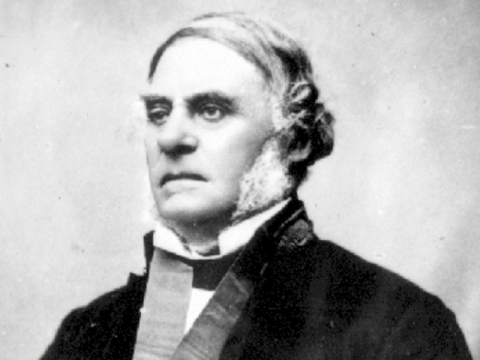Celebrate Black History Month - Governor James Douglas

The PSAC BC Racially Visible Caucus and the Union of National Employees BC and Yukon invite you to Celebrate Black History Month with a series of posters, facts, and bookmarks that commemorate our heritage. Here is the fifth of a series of informative posters members can print and display at their worksites.
In 1858, about 400 black Californian families moved to BC, enriching the cultural life of the new colony.
The first large wave of African-Americans to come to British Columbia were invited by James Douglas, Governor of Vancouver Island, in 1858. Douglas, the son of an African Creole mother from the Caribbean and a European father, was sensitive to the concerns of African-Americans in California. Due to growing legal restrictions on their ability to live and work as equals, black Californians were alarmed when a runaway slave was allowed to be arrested in California, and when only blacks were suddenly expected to register.
In 1858, nearly 800 free black people left the oppressive racial conditions of San Francisco for a new life on Vancouver Island. Governor James Douglas had invited them to settle in British Columbia. Though still faced with intense discrimination, these pioneers enriched the political, religious and economic life of the colony. For example, Mifflin Gibbs became a prominent politician, Charles and Nancy Alexander initiated the Shady Creek Methodist Church, and John Deas established a salmon cannery. The group also formed one of the earliest colonial militia units, the Victoria Pioneer Rifle Corps.
A ceremony took place on February 20, 2000 in Saanichton, B.C. to honour the arrival of the Black Pioneers to British Columbia.
| Attachment | Size |
|---|---|
| 764.76 KB |
